Coronavirus in Scotland: What does lifting of restrictions look like?
- Published
Hundreds of shoppers braved the rain to queue outside an Ikea in Glasgow
More coronavirus lockdown restrictions have been eased in Scotland with more places reopening.
As the changes are expected to lead to public transport getting busier, the Scottish government has made face coverings compulsory.
From Monday, places of worship are also allowed to reopen for individual prayer - but not communal worship.
Professional sport is allowed to resume behind closed doors and dentists can see patients who need urgent care.
And more shops have reopened in Scotland, including Ikea.
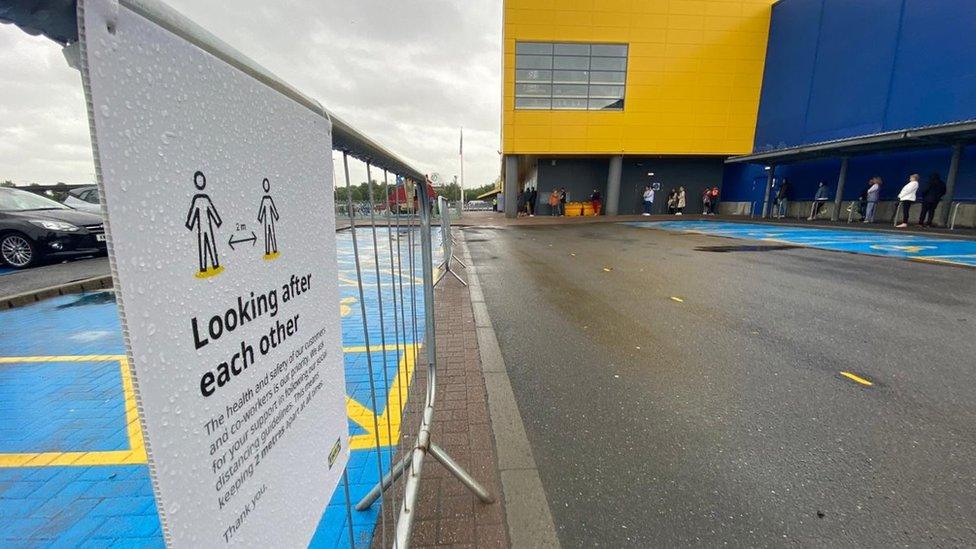
Hundreds of people waited in the rain to visit Ikea near Glasgow

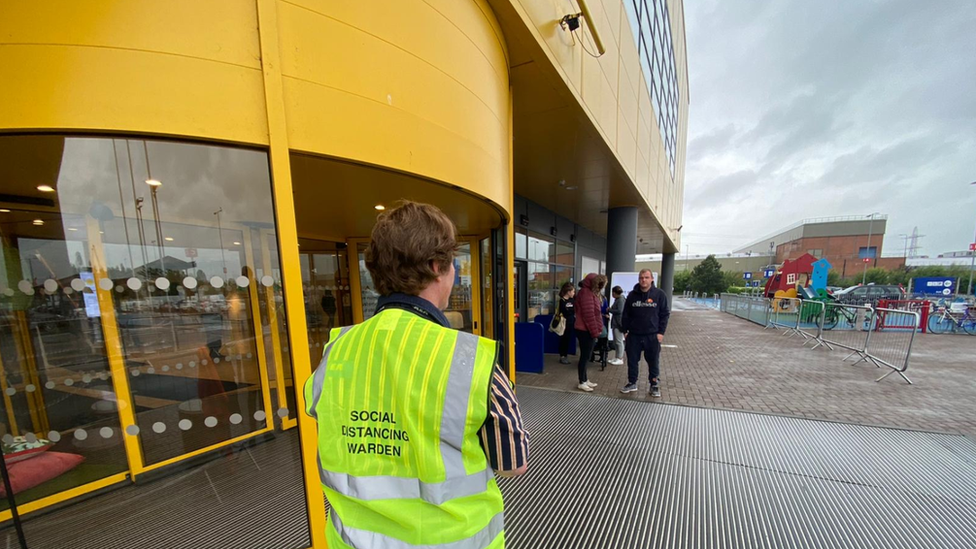
Staff at Ikea were on hand to help customers navigate the store's new approach following the lifting of restrictions

On Monday morning hundreds of shoppers queued in the rain outside the Braehead store.
They waited in a socially-distanced queue which stretched around the car park.

Allow X content?
This article contains content provided by X. We ask for your permission before anything is loaded, as they may be using cookies and other technologies. You may want to read X’s cookie policy, external and privacy policy, external before accepting. To view this content choose ‘accept and continue’.

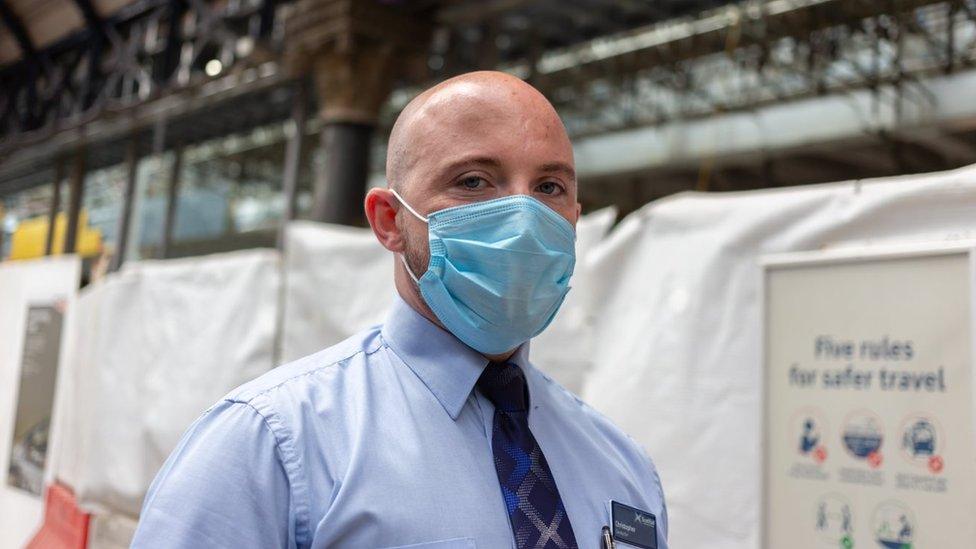
Passengers and staff must now wear face coverings on public transport



It was the first time face coverings were mandatory for commuters on public transport.
Almost everyone on buses, trains, the Glasgow Subway and Edinburgh trams, planes, taxis and private hire cabs, as well as enclosed areas on ferries, is expected to wear one now.


Most passengers are expected to wear masks

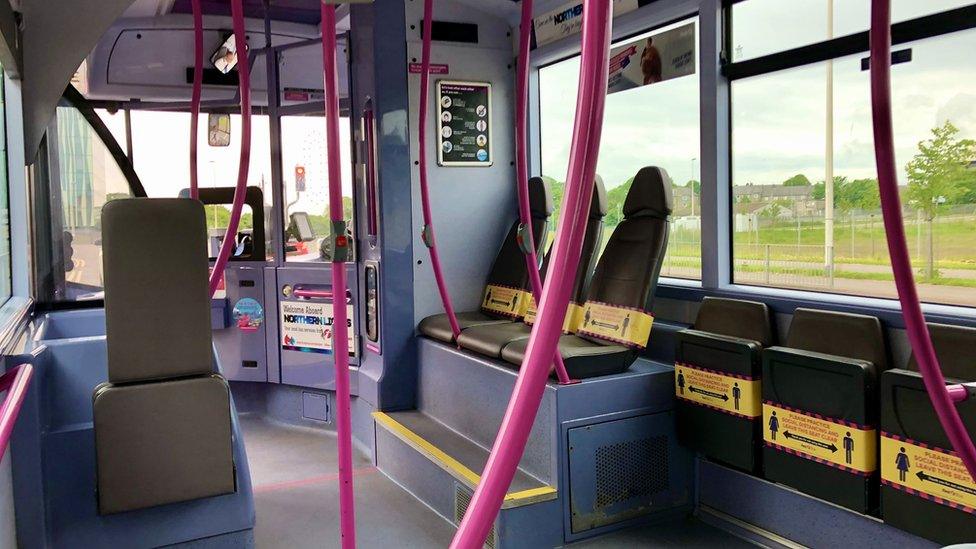
On one bus service in Aberdeen, a BBC reporter said after about three stops there was a shortage of socially distant seats and passengers started sitting in any available space

There are a few exceptions, including those with certain medical conditions and small children.
On one bus service in Aberdeen, BBC reporter Davy Shanks said, external after about three stops there was a shortage of socially distant seats and passengers started sitting in any available space. He said not all passengers were wearing a mask.

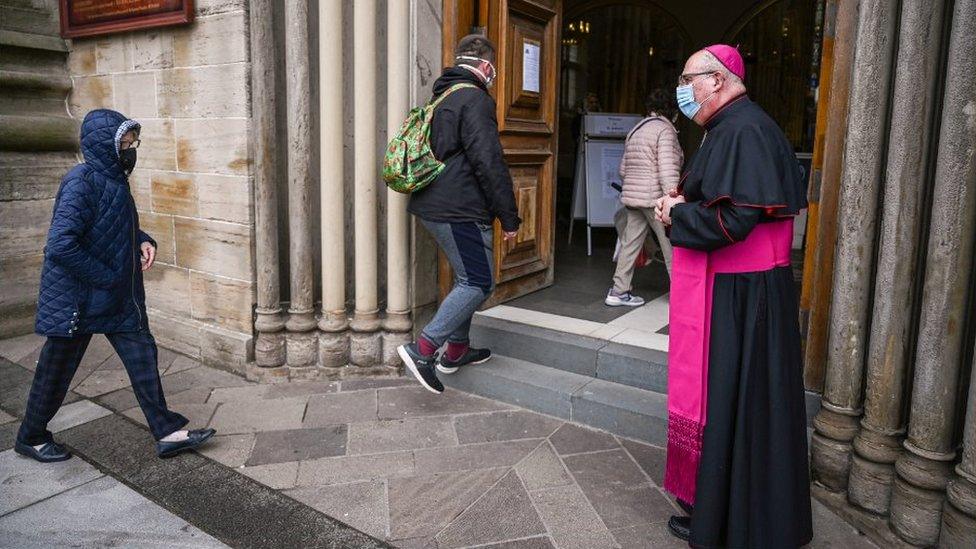
Archbishop Philip Tartaglia opened the doors of St Andrew's Cathedral in Glasgow as places of worship reopened for private prayer

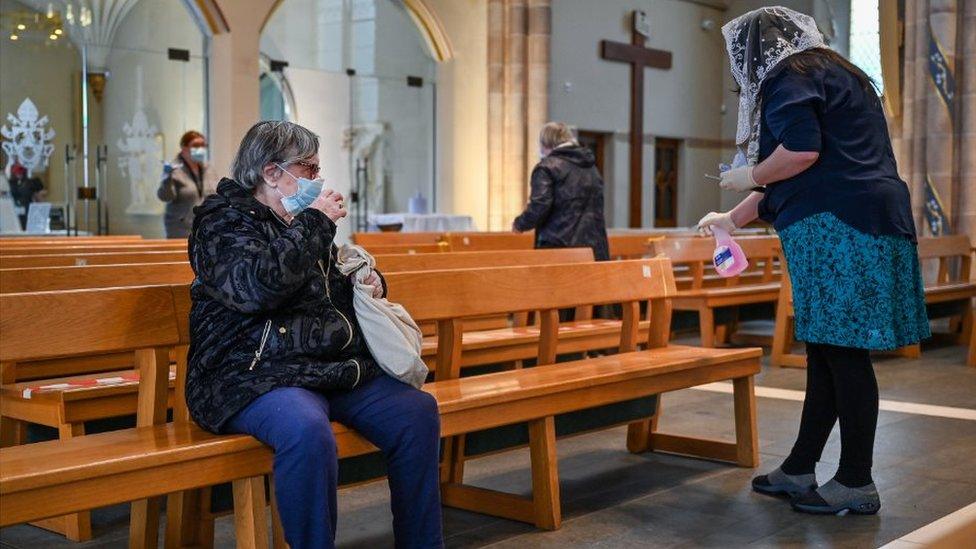
Social distancing measures and a cleaning regimen were in place at the cathedral

On Monday, places of worship were also allowed to reopen.
Communal worship services are still not allowed, but worshippers are allowed to visit for private prayer as long as they stick to social distancing rules.

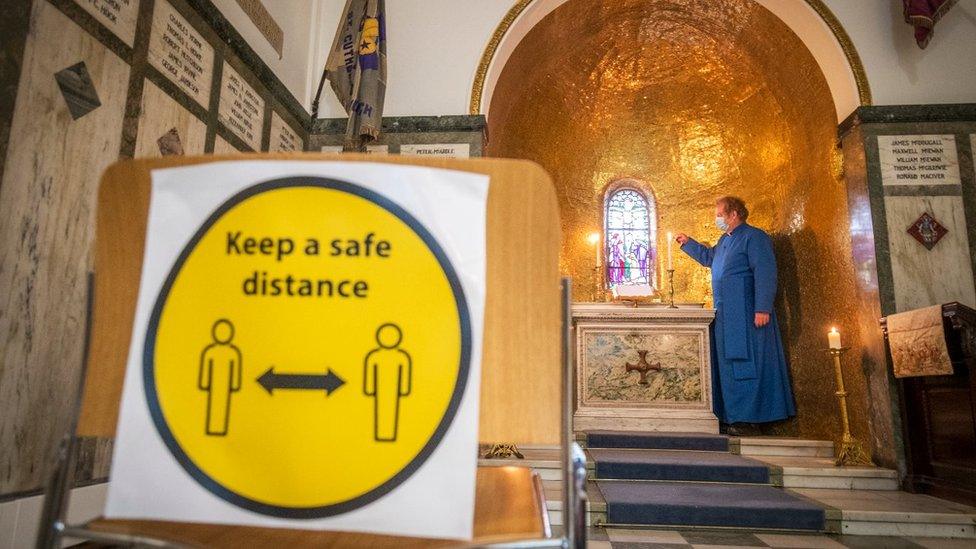
Rev Peter Sutton makes preparations to allow space for private prayer in the Memorial Chapel at St Cuthbert's Parish Church in Edinburgh

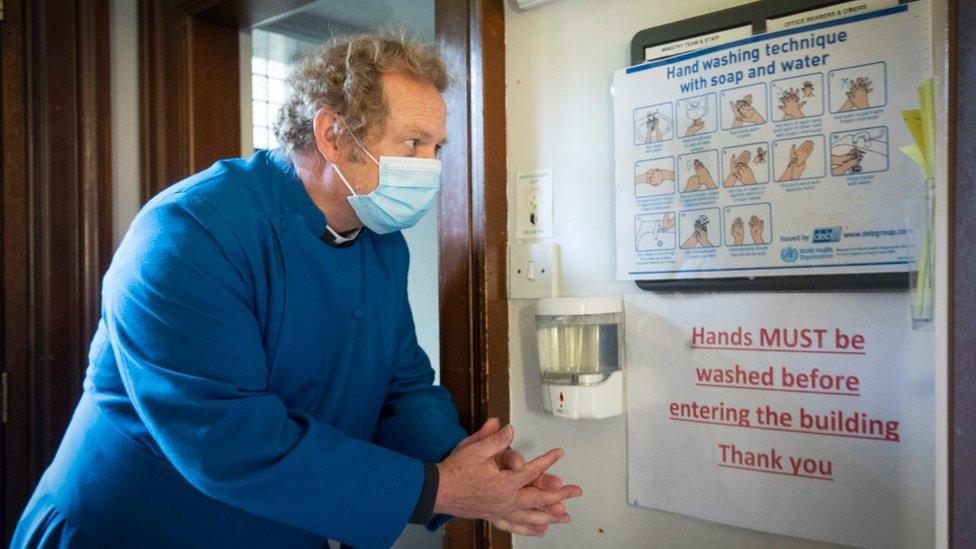
Rev Peter Sutton washes his hands before making preparations to allow space for private prayer at St Cuthbert's

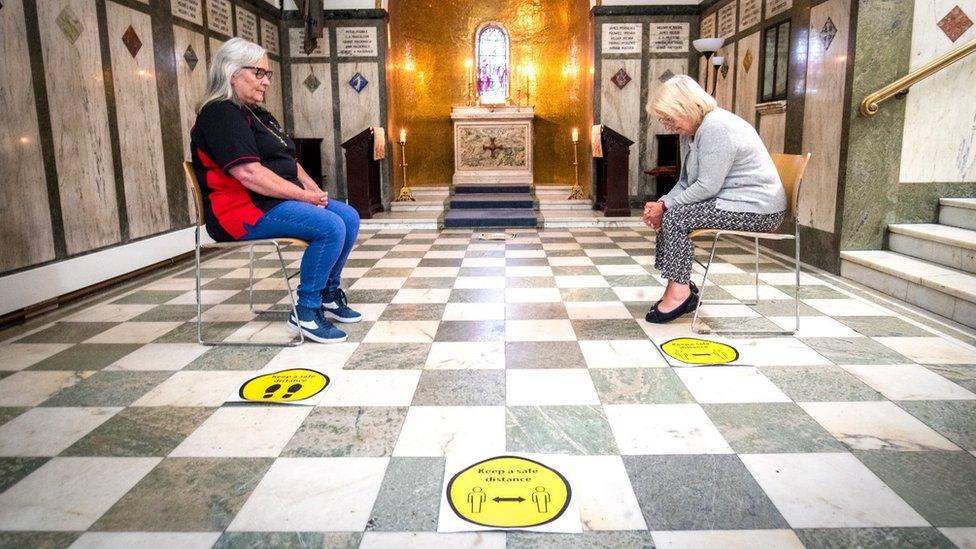
Parishioners pray in the Memorial Chapel at St Cuthbert's

In Edinburgh, St Cuthbert's Church reopened to allow two hours of private prayer on certain days.
Three people can be accommodated at a time in its memorial chapel.

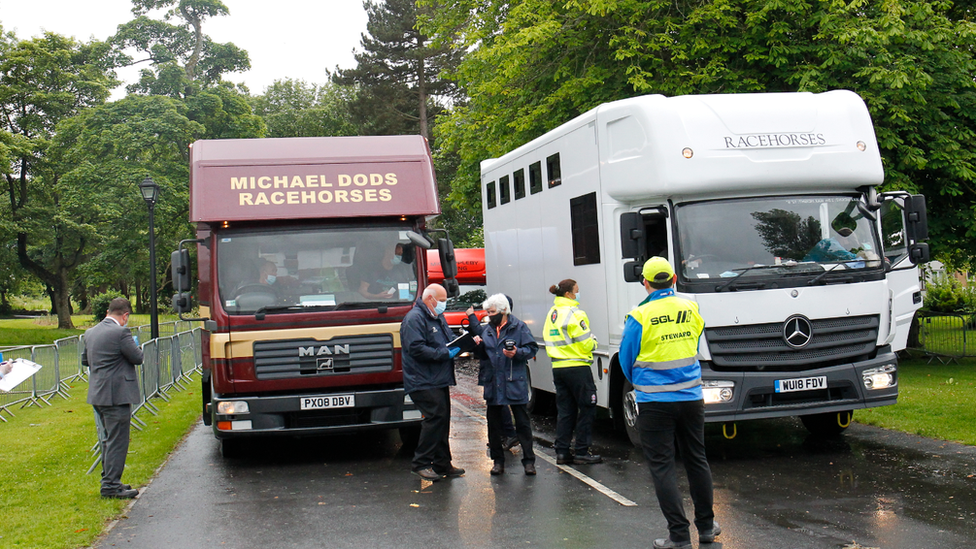
Officials check horse-boxes as they arrive at Ayr for Scotland's first meeting back since the resumption of racing

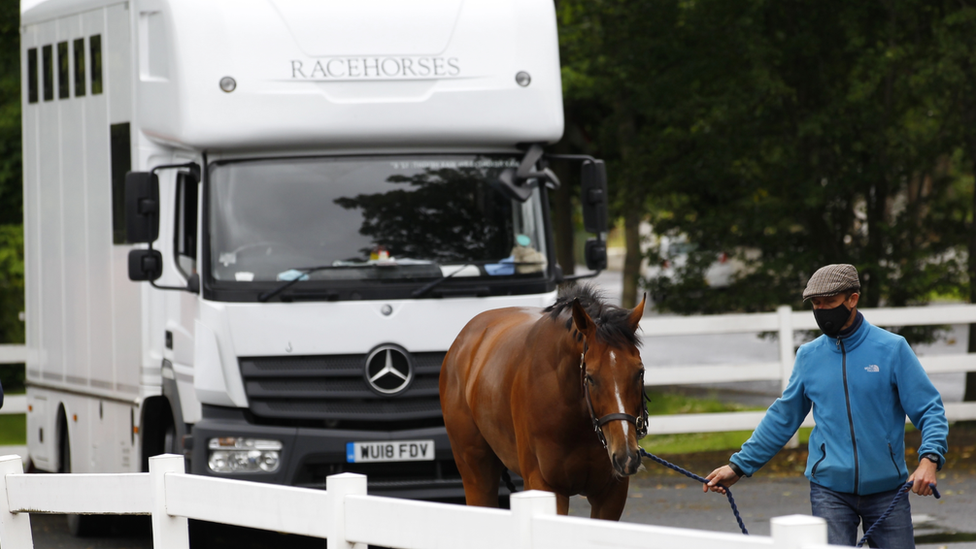

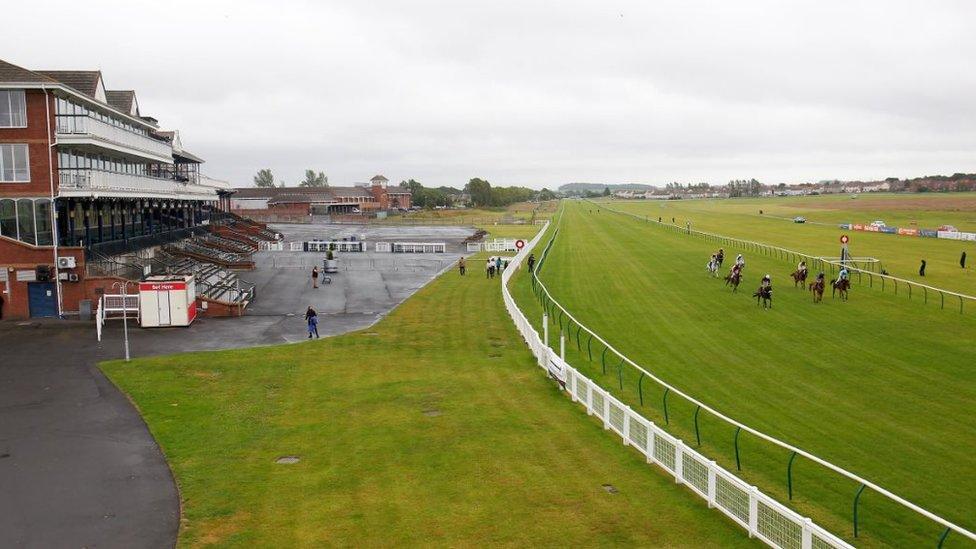
Racing resumed at Ayr Racecourse but the public were not allowed to attend

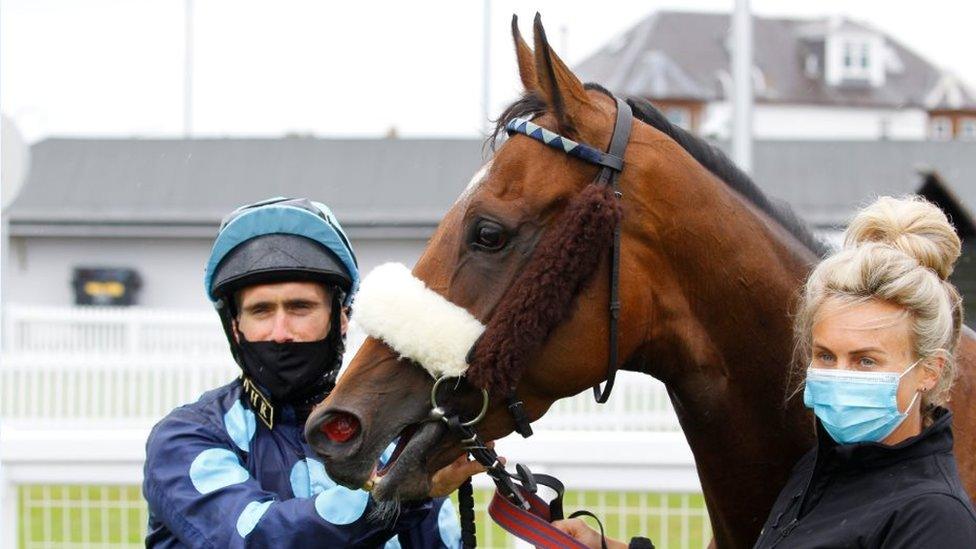
Que Amoro with jockey Paul Mulrennan after winning at Ayr Racecourse

Professional sport is also allowed to resume now.
Horse racing returned to Scotland for the first time since lockdown with a meeting at Ayr.
The sport has been suspended in Scotland since 17 March but restarted in England on 1 June.
Allow X content?
This article contains content provided by X. We ask for your permission before anything is loaded, as they may be using cookies and other technologies. You may want to read X’s cookie policy, external and privacy policy, external before accepting. To view this content choose ‘accept and continue’.

Dentists were also allowed to reopen to patients with "urgent" care needs - but practices cannot carry out certain procedures which generate aerosols, including drilling.
Patients who need such procedures in an emergency will continue to be directed to hubs where dentists will have access to more PPE so they can be carried out safely.
And the construction industry will be able to move to the next phase of its restart plan.